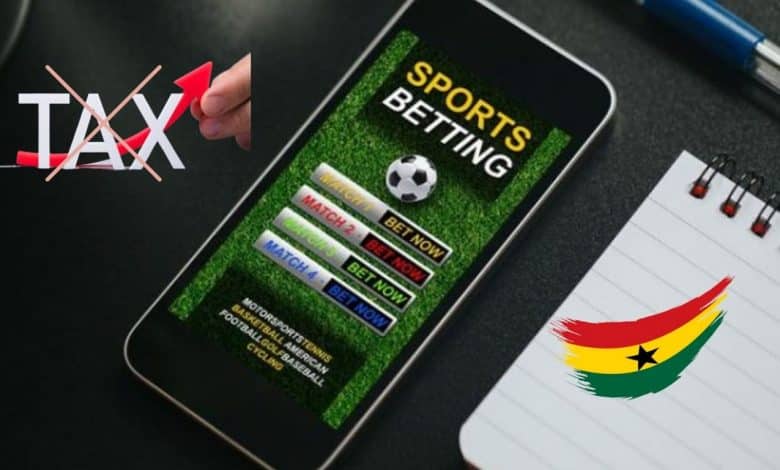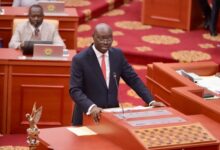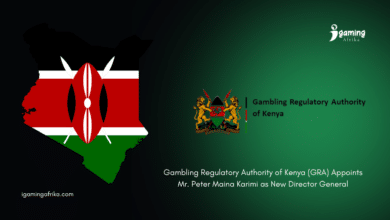Ghana: Betting tax sparks public outcry and economic skepticism

Accra, Nov 17- Last August, Ghana’s government controversially introduced a 10 percent withholding tax on betting and lottery winnings, along with a 20 percent withholding tax on the overall gaming revenue for betting companies. Ghana Betting
Experts have expressed concerns about the potential economic consequences of this decision, which has not only led to public dissatisfaction but also raised uncertainties.
In Accra’s numerous sports betting centers, the predominant sentiment among individuals is largely negative. The gamblers are vociferously calling for the elimination of the tax, contending that it unjustly focuses on their diligently obtained winnings.
Ghana has previously made attempts to enforce this tax, but it was initially introduced in 2015 and eventually abandoned in 2017. The reasons for its abandonment were the difficulties faced during implementation and the protests from various stakeholders.
Originally presented as an amendment to the income tax law, this legislation proposed a uniform 5 percent tax rate on all earnings from lotteries and bets made both on local betting platforms and in physical establishments. However, bettors have voiced their opposition to the law, contending that their winnings only come after repeatedly unsuccessful attempts.
A threshold of GH¢2,592 ($225) was set by the modification, which means only earnings exceeding this amount will be eligible for taxation.
The recent reintroduction was justified by Mr. Edward Gyambrah, the head of the Domestic Tax and Revenue Division at the Ghana Revenue Authority.
To enhance the mobilisation of domestic tax revenue, considering that Ghana’s overall tax-to-Gross Domestic Product (GDP) ratio is notably lower compared to that of other nations in the sub-region.
He emphasized the significance of this action, stating that it is essential
Read Also: ICE London 2024 Registration Now Open
Nevertheless, tax consultant Francis Timore Boi expresses doubts about the potential consequences, claiming that the tax may not have a significant transformative effect on the economy. He contends that in order to adequately meet its financial obligations, the government should pursue more wide-ranging revenue streams. Ghana Betting Tax
Ghana is committed to lowering its debt-to-GDP ratio from above 100 percent to 55 percent by 2028 through an IMF program, and increasing tax revenue is vital in achieving this goal. The IMF predicts that Ghana’s current tax revenue, currently at 17.2 percent of GDP, will rise to the Sub-Saharan Africa average of 20 percent by 2028. This could impact local gambling sites in Ghana, as they are also a part of the gambling industry.
The Ghana Revenue Authority remains optimistic about the economic impact of betting and expects to generate GH¢1.2 billion ($104 million) in revenue by the end of 2023, despite doubts from critics.
Advocates assert that the tax has a twofold objective: generating income and tackling the increasing gambling obsession in the nation, specifically among young people. Instances of individuals squandering company resources, offerings, and educational fees on gambling have intensified the moral discussion regarding gambling in Ghana.
Osei Kyei Mensah Bonsu, the Majority Leader, has voiced his concerns about betting, expressing, “I do not endorse betting… I support the idea of working diligently to earn money.” He perceives the tax as a tool to discourage gambling and advocate for a more robust work ethic.
Richard Aguda, a convener of a group of bettors who are contesting the new tax, expresses his desire for a decrease to only 3 percent in response. He points out that there is a significant number of unemployed youth who depend on betting for their livelihood. Aguda emphasizes the potential adverse effects of the current 10 percent tax, warning that it may drive individuals back into a life of crime.
The sports betting industry globally has experienced remarkable expansion, projected to reach a staggering $242 billion by 2022. In Ghana, the industry’s rapid growth is evident with over 22 registered sports betting companies and over a dozen lottery agents operating within the country.
However, challenges may arise in taxing offshore companies that facilitate online betting and prize redemption, as they have the potential to operate outside the jurisdiction of the Ghana Revenue Authority, thus evading regulatory oversight.
The ongoing discussion surrounding the betting tax leaves us curious about how the government will reconcile its financial requirements while also acknowledging the worries of a considerable portion of the population who depend on betting for their income.
Source: GNA Ghana Betting Tax























